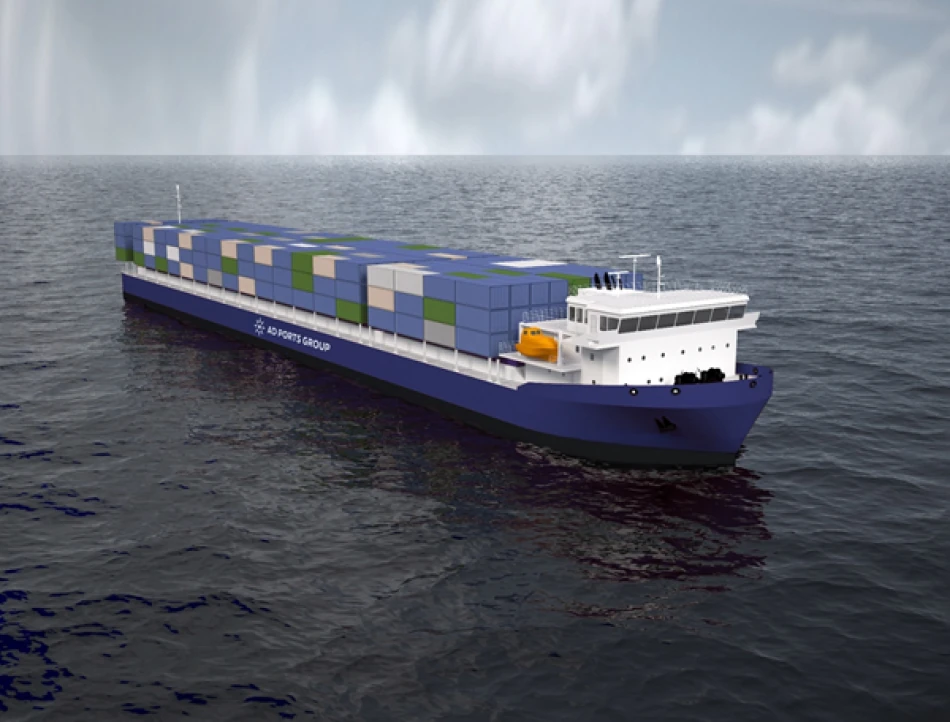
Abu Dhabi Ports Awards Baku Shipyards Contract to Build Two Shallow-Draft Container Vessels
UAE's Abu Dhabi Ports Bets Big on Caspian Sea Trade with New Container Fleet
Abu Dhabi Ports Group has signed a contract with Azerbaijan's Baku Shipyard to build two container vessels, each with a capacity of 780 TEU, marking a strategic push into the lucrative Caspian Sea trade corridor. The move positions the UAE as a key logistics player in Central Asia's energy-rich region, where growing trade volumes and geopolitical shifts are creating new opportunities for maritime operators.
Strategic Investment in an Underserved Market
The contract, signed with Azerbaijan Holding for Transport and Communications on behalf of Baku Shipyard, reflects Abu Dhabi's calculated expansion into regions where Western operators have reduced presence. The vessels, scheduled for delivery in Q4 2027, will serve commercial hubs across the Caspian Sea basin, connecting energy exporters with global markets through UAE's established trade networks.
Captain Mohamed Juma Al Shamisi, CEO of Abu Dhabi Ports Group, emphasized that the initiative aligns with UAE leadership's vision while addressing growing container shipping demand in the region. The vessels are designed to provide more efficient, reliable, and sustainable transport solutions for an area traditionally underserved by major shipping lines.
The Caspian Corridor Opportunity
Energy Transit Hub Potential
The Caspian Sea region sits atop significant oil and gas reserves, with Kazakhstan, Azerbaijan, and Turkmenistan seeking alternative export routes beyond traditional Russian pipelines. Abu Dhabi's investment positions UAE ports as potential transshipment points for Central Asian energy exports, diversifying both the region's export options and UAE's cargo mix.
Middle Corridor Renaissance
This shipping investment complements Abu Dhabi Ports' broader Central Asian strategy. In June, the group opened the first phase of the Tbilisi Multimodal Hub in Georgia, creating a crucial logistics link between the Caspian and Black Seas. This rail-connected facility serves the Middle Corridor, the shortest trade route between Asia and Europe, which has gained prominence as companies seek alternatives to traditional Suez Canal and Northern Sea routes.
Market Implications and Competitive Positioning
Challenging Established Players
While 780 TEU vessels are relatively small by global standards, they're appropriately sized for Caspian Sea operations, where port infrastructure and water depth limitations restrict larger container ships. This targeted approach allows Abu Dhabi Ports to compete effectively against regional operators while building market share in a growing trade corridor.
Timing Advantage
The 2027 delivery timeline coincides with expected completion of various Central Asian infrastructure projects, including railway upgrades and port expansions. By establishing container services before major competitors, Abu Dhabi Ports could secure long-term contracts with regional shippers and energy companies.
UAE-Azerbaijan Economic Partnership
The shipping contract builds on strengthening UAE-Azerbaijan ties, formalized through a Comprehensive Economic Partnership Agreement signed in July 2024. UAE ranks among Azerbaijan's largest foreign investors with over $1 billion in direct investments, while bilateral non-oil trade surged 43% to $2.4 billion in 2023.
This economic relationship provides Abu Dhabi Ports with local knowledge and government support essential for navigating Central Asian markets, where business relationships and regulatory understanding often determine success more than pure commercial factors.
Regional Competition and Risks
Abu Dhabi's Caspian expansion faces competition from established regional players including Turkey's ports, which benefit from existing Middle Corridor connections, and potential future competition from Saudi Arabia's logistics expansion. Additionally, the region's political complexity and sanctions considerations require careful navigation.
However, UAE's neutral foreign policy stance and established trade relationships with both Western and Eastern markets provide competitive advantages that purely regional operators cannot match. The country's position as a global transshipment hub offers Central Asian exporters access to markets that direct shipping routes cannot efficiently serve.
The investment signals UAE's confidence in Central Asia's long-term growth potential and its commitment to diversifying beyond traditional Gulf trade routes, potentially establishing a new revenue stream as global supply chains continue reshaping around geopolitical realities.
Most Viewed News

 Layla Al Mansoori
Layla Al Mansoori






